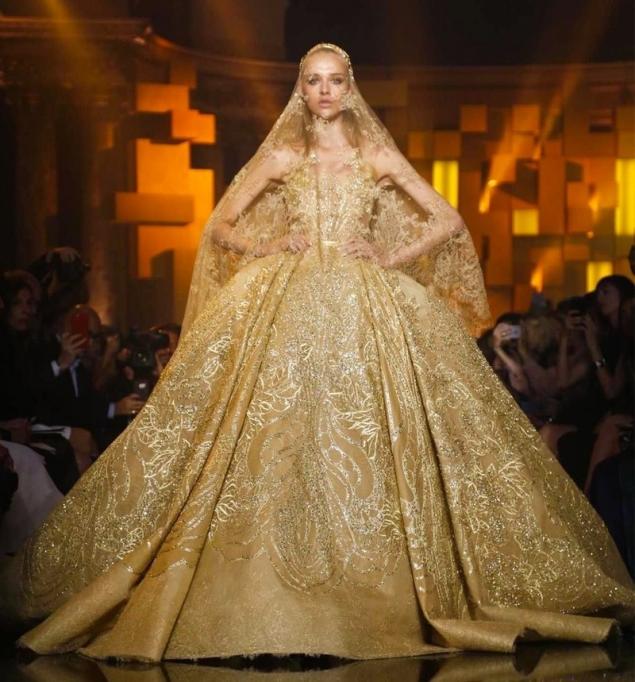838
Three Faces of Narcissus. No children's portraits of personality in children's stories
I propose to consider the types of identity daffodils on the example of literature, fairy tale, cartoon characters.

1. The beast from the fairy tale "Beauty and the Beast" (passive-aggressive type).
Good and cruel at the same time, writes in his tale of Jeanne Marie Jeanne-Marie Leprince de Beaumont. Beast - The Enchanted Prince, whose spell is only capable of a sincere love of a woman. Cartoon Disney's "Beauty and the Beast" most fully illustrates to us the nature of the character: it is a being who rejected the world, lives in seclusion, but waiting for someone who should definitely come to take care of him, he is like a vampire parasite on devotion to a poor girl who becomes a voluntary prisoner, taking on the role of unwitting victims of terrorist host.
He is terrible in his selfish anger: "You will dine with me or just stay hungry!" Everything should be aware that it is necessary and simply must obey his momentary desires! Narcissistic rage is replaced by resentment and charming children's helplessness: "If you leave, I'll die without you." This behavior often show daffodils drink strong drinks, as well as the person with other addictions (gambling, drugs).
For him completely unbearable loneliness, even in relation to a close, it shows psychological sadism, cruelty (disrespect and disregard for the interests, autonomy, needs a partner, belittling the dignity, insults) and cynical indifference.
Relationship with yourself and your actions not particularly criticism, although sometimes he notices that next to it is necessary to exercise maximum patience and acceptance, and then, perhaps, it will turn into a prince if cope with feelings of guilt and self-destructive feeling of hatred for Me ...
The tale ends with the wedding, but Belle does not know that in the morning she wakes up again with the Beast.
Three Faces of Narcissus. No children's portraits of personality in children's stories
Monster - the son of autocratic, imperious parents, which often played the role of despot mother and a weak father was forced to submit to it, to save a mother's love child had to be identified with it. But the possibility and permutation of roles - a weak mother and domineering father, the result is the same, with the complication in sex-role development (homosexuality, transsexuality)
. 2. Snow Queen or Elsa from the cartoon "The Cold Heart" (paranoid personality).
Here, in whom fully reveals the omnipotence and narcissistic grandiosity! Little Elsa from childhood were taught that it is a special child, that she has a gift, which manage, at the same time, it has no power, so they are forbidden to use. Well, that remains a little girl who knows about their opportunities, but could not take advantage of them and reveal their personality ?!
What it remains to think, even if the closest people - his mother and father are afraid of it? Only one way out - to hide from the world in his room. "Do not open, keep secrets, be a good girl for all, close all the senses of the castle .." - Elsa sings in his "hymn of liberation from inhibitions." This song and the corresponding plot vivid illustration of the liberation of the individual from internal "shackles" - prohibitions to be a declaration of the right to self-affirmation, the cost of giving up a close relationship
. It is better to get away from everyone to abandon the relationship than to experience constant fear of negative evaluation of others, because they still do not understand my "features" will not see my immense abilities, and therefore they do not deserve to be there. The basic pattern of behavior of this type of Narcissus - avoiding deep relationships, fear of rejection like a real projection of the negative parts of the ego on the other, the internal installation of "all against me" and only with myself, it feels perfect queen, mistress of a cold world, which is limited to the walls of the ice castle.
Three Faces of Narcissus. No children's portraits of personality in children's stories
The family of the child - the cold, stingy on the support, the joy of personal achievements and discoveries of the child, the parents. They ignore the success of the child in his small, but important events of life, unconsciously competing with him, competing in the superiority in strength, mind, agility, brutally punishing is not as expected "standards", which, in their view, must comply with the child.
He feels that he does not notice it as though not in reality, as a result of the child begins to feel "invisible", one way out - to escape into a fantasy world (up to psychotic), where he could build his alternative world in which he feel loved, desired, meaningful living.
3.Tsaritsa (phallic Narcissus) - a fairy tale of Snow White and her stepmother - Queen
. This type is fixed on her appearance and everything that is connected with the external attributes of excellence and perfection: clothes, car, apartment, yacht, handsome husband or a beautiful wife. "I am only weapon in the light of all the sweeter, all ruddy and whiter, and her mirror in the answer: you are beautiful, no doubt," (AS Pushkin "The Tale of the dead Princess and Seven Knights) - analogue of Russian fairy tales in the queen asked the mirror and mirror confirms its unique beauty and only one makes life Queen - young beauty Snow White, whose beauty is the envy and the desire to destroy it
. This type of daffodils is very common among the public, well-known people. Men of this type have a pronounced manly appearance, emphasize the musculature, for their own body - a phallus, which are infinitely proud. Women also have a bright, attractive appearance, which is spent on the maintenance of all the free men of the conquest of the phallic period.
If these two individuals find each other, their romance becomes a social event, illuminated, and accompanied by a grandiose scale and extravaganza, and then they all sought and obtained from each other, to part with the same grand conflict, division of property, child and dog .
For visually appealing façade personal emptiness, the absence of a mature sense of duty and responsibility for the relationship, the moral defect, underdeveloped emotional and personal values (kindness, affection, love, caring, devotion), all this is replaced by irrepressible desire for pleasure and enjoyment, here promiskuitetnye relations (frequent change of sexual partners), cheating wife / husband, prostitutes, manipulative behavior - selling itself as a transaction in order to obtain benefits
. Relationships are built on the principle of "mirrors", selected partner or team partners, the function of which reflect the greatness periodically receive "cuffs" for the "wrong" reflection, if the partner protests, he ceases to be a favorite and is expelled from the environment, and its place is taken by a new "mirror . »
These children are used by their parents in their own personal purposes, they exhibited "the show", forced to do something that is not characteristic of the child, exaggerated paid much attention to the characteristics of the child, which is not enough in itself, thus realizing, their idealized fantasies and grandiose plans, depriving him of his own personality.
The parents themselves have narcissistic traits and could not afford a child unconditional love and acceptance, love him for a reason, and for something of beauty, talent, high grades in school, any deviation from the desired "indicators" punished rejection, deprivation of attention, care, the child was forced to adjust to the parent "standards", the inner feeling of losing the right to be just, be that as it is.
Three Faces of Narcissus. No children's portraits of personality in children's stories
If you carefully observe the behavior of the character data, you can identify common traits that correspond to the generalized signs of all types of narcissistic personalities:
a sense of inferiority, imperfection, not solvency, "badness" that giperkompensiruetsya self-aggrandizement, grandiosity, striving for perfection, omnipotence;
total shame for his "badness", not perfection, shame protection - projection, denial, repression, splitting;
social "mask" (the false self) success, excellence manifested often in the outer demeanor with others - avoid eye contact, look "with high" does not hide the contempt for "inferior" is not equal to yourself, faith in your over possible omnipotence of thought (I should understand without words, any desired should be done by itself);
low capacity for empathy, no empathy for your partner on relationships, on which relations are formalized in the pair quickly become artificial, emotionally cold;
in relations alternating idealization and devaluation, idealization phase to -Love, attraction, admiration, desire to merge, in the phase of depreciation - the rejection, refusal or breakup, insults, humiliation partner, an open demonstration of hatred and contempt;
intolerant of imperfections, shortcomings of his own and others;
the envy of other people's merits and abilities, which have no or believes that they deprived;
frequent changes of activity and passivity, the "workaholic", then "Emelya on the stove," for which all must comply with Pike, everything should happen naturally, without effort (career, study, personal relationships);
difficulties in building lasting partnerships, family relations, conflict in groups;
loneliness and helplessness of the end of life.
Author: Elena Korushina

1. The beast from the fairy tale "Beauty and the Beast" (passive-aggressive type).
Good and cruel at the same time, writes in his tale of Jeanne Marie Jeanne-Marie Leprince de Beaumont. Beast - The Enchanted Prince, whose spell is only capable of a sincere love of a woman. Cartoon Disney's "Beauty and the Beast" most fully illustrates to us the nature of the character: it is a being who rejected the world, lives in seclusion, but waiting for someone who should definitely come to take care of him, he is like a vampire parasite on devotion to a poor girl who becomes a voluntary prisoner, taking on the role of unwitting victims of terrorist host.
He is terrible in his selfish anger: "You will dine with me or just stay hungry!" Everything should be aware that it is necessary and simply must obey his momentary desires! Narcissistic rage is replaced by resentment and charming children's helplessness: "If you leave, I'll die without you." This behavior often show daffodils drink strong drinks, as well as the person with other addictions (gambling, drugs).
For him completely unbearable loneliness, even in relation to a close, it shows psychological sadism, cruelty (disrespect and disregard for the interests, autonomy, needs a partner, belittling the dignity, insults) and cynical indifference.
Relationship with yourself and your actions not particularly criticism, although sometimes he notices that next to it is necessary to exercise maximum patience and acceptance, and then, perhaps, it will turn into a prince if cope with feelings of guilt and self-destructive feeling of hatred for Me ...
The tale ends with the wedding, but Belle does not know that in the morning she wakes up again with the Beast.
Three Faces of Narcissus. No children's portraits of personality in children's stories
Monster - the son of autocratic, imperious parents, which often played the role of despot mother and a weak father was forced to submit to it, to save a mother's love child had to be identified with it. But the possibility and permutation of roles - a weak mother and domineering father, the result is the same, with the complication in sex-role development (homosexuality, transsexuality)
. 2. Snow Queen or Elsa from the cartoon "The Cold Heart" (paranoid personality).
Here, in whom fully reveals the omnipotence and narcissistic grandiosity! Little Elsa from childhood were taught that it is a special child, that she has a gift, which manage, at the same time, it has no power, so they are forbidden to use. Well, that remains a little girl who knows about their opportunities, but could not take advantage of them and reveal their personality ?!
What it remains to think, even if the closest people - his mother and father are afraid of it? Only one way out - to hide from the world in his room. "Do not open, keep secrets, be a good girl for all, close all the senses of the castle .." - Elsa sings in his "hymn of liberation from inhibitions." This song and the corresponding plot vivid illustration of the liberation of the individual from internal "shackles" - prohibitions to be a declaration of the right to self-affirmation, the cost of giving up a close relationship
. It is better to get away from everyone to abandon the relationship than to experience constant fear of negative evaluation of others, because they still do not understand my "features" will not see my immense abilities, and therefore they do not deserve to be there. The basic pattern of behavior of this type of Narcissus - avoiding deep relationships, fear of rejection like a real projection of the negative parts of the ego on the other, the internal installation of "all against me" and only with myself, it feels perfect queen, mistress of a cold world, which is limited to the walls of the ice castle.
Three Faces of Narcissus. No children's portraits of personality in children's stories
The family of the child - the cold, stingy on the support, the joy of personal achievements and discoveries of the child, the parents. They ignore the success of the child in his small, but important events of life, unconsciously competing with him, competing in the superiority in strength, mind, agility, brutally punishing is not as expected "standards", which, in their view, must comply with the child.
He feels that he does not notice it as though not in reality, as a result of the child begins to feel "invisible", one way out - to escape into a fantasy world (up to psychotic), where he could build his alternative world in which he feel loved, desired, meaningful living.
3.Tsaritsa (phallic Narcissus) - a fairy tale of Snow White and her stepmother - Queen
. This type is fixed on her appearance and everything that is connected with the external attributes of excellence and perfection: clothes, car, apartment, yacht, handsome husband or a beautiful wife. "I am only weapon in the light of all the sweeter, all ruddy and whiter, and her mirror in the answer: you are beautiful, no doubt," (AS Pushkin "The Tale of the dead Princess and Seven Knights) - analogue of Russian fairy tales in the queen asked the mirror and mirror confirms its unique beauty and only one makes life Queen - young beauty Snow White, whose beauty is the envy and the desire to destroy it
. This type of daffodils is very common among the public, well-known people. Men of this type have a pronounced manly appearance, emphasize the musculature, for their own body - a phallus, which are infinitely proud. Women also have a bright, attractive appearance, which is spent on the maintenance of all the free men of the conquest of the phallic period.
If these two individuals find each other, their romance becomes a social event, illuminated, and accompanied by a grandiose scale and extravaganza, and then they all sought and obtained from each other, to part with the same grand conflict, division of property, child and dog .
For visually appealing façade personal emptiness, the absence of a mature sense of duty and responsibility for the relationship, the moral defect, underdeveloped emotional and personal values (kindness, affection, love, caring, devotion), all this is replaced by irrepressible desire for pleasure and enjoyment, here promiskuitetnye relations (frequent change of sexual partners), cheating wife / husband, prostitutes, manipulative behavior - selling itself as a transaction in order to obtain benefits
. Relationships are built on the principle of "mirrors", selected partner or team partners, the function of which reflect the greatness periodically receive "cuffs" for the "wrong" reflection, if the partner protests, he ceases to be a favorite and is expelled from the environment, and its place is taken by a new "mirror . »
These children are used by their parents in their own personal purposes, they exhibited "the show", forced to do something that is not characteristic of the child, exaggerated paid much attention to the characteristics of the child, which is not enough in itself, thus realizing, their idealized fantasies and grandiose plans, depriving him of his own personality.
The parents themselves have narcissistic traits and could not afford a child unconditional love and acceptance, love him for a reason, and for something of beauty, talent, high grades in school, any deviation from the desired "indicators" punished rejection, deprivation of attention, care, the child was forced to adjust to the parent "standards", the inner feeling of losing the right to be just, be that as it is.
Three Faces of Narcissus. No children's portraits of personality in children's stories
If you carefully observe the behavior of the character data, you can identify common traits that correspond to the generalized signs of all types of narcissistic personalities:
a sense of inferiority, imperfection, not solvency, "badness" that giperkompensiruetsya self-aggrandizement, grandiosity, striving for perfection, omnipotence;
total shame for his "badness", not perfection, shame protection - projection, denial, repression, splitting;
social "mask" (the false self) success, excellence manifested often in the outer demeanor with others - avoid eye contact, look "with high" does not hide the contempt for "inferior" is not equal to yourself, faith in your over possible omnipotence of thought (I should understand without words, any desired should be done by itself);
low capacity for empathy, no empathy for your partner on relationships, on which relations are formalized in the pair quickly become artificial, emotionally cold;
in relations alternating idealization and devaluation, idealization phase to -Love, attraction, admiration, desire to merge, in the phase of depreciation - the rejection, refusal or breakup, insults, humiliation partner, an open demonstration of hatred and contempt;
intolerant of imperfections, shortcomings of his own and others;
the envy of other people's merits and abilities, which have no or believes that they deprived;
frequent changes of activity and passivity, the "workaholic", then "Emelya on the stove," for which all must comply with Pike, everything should happen naturally, without effort (career, study, personal relationships);
difficulties in building lasting partnerships, family relations, conflict in groups;
loneliness and helplessness of the end of life.
Author: Elena Korushina
Alla Abdrazyakova: Sick those internally rent
Concept Audi crossover is equipped with an electric skateboard























